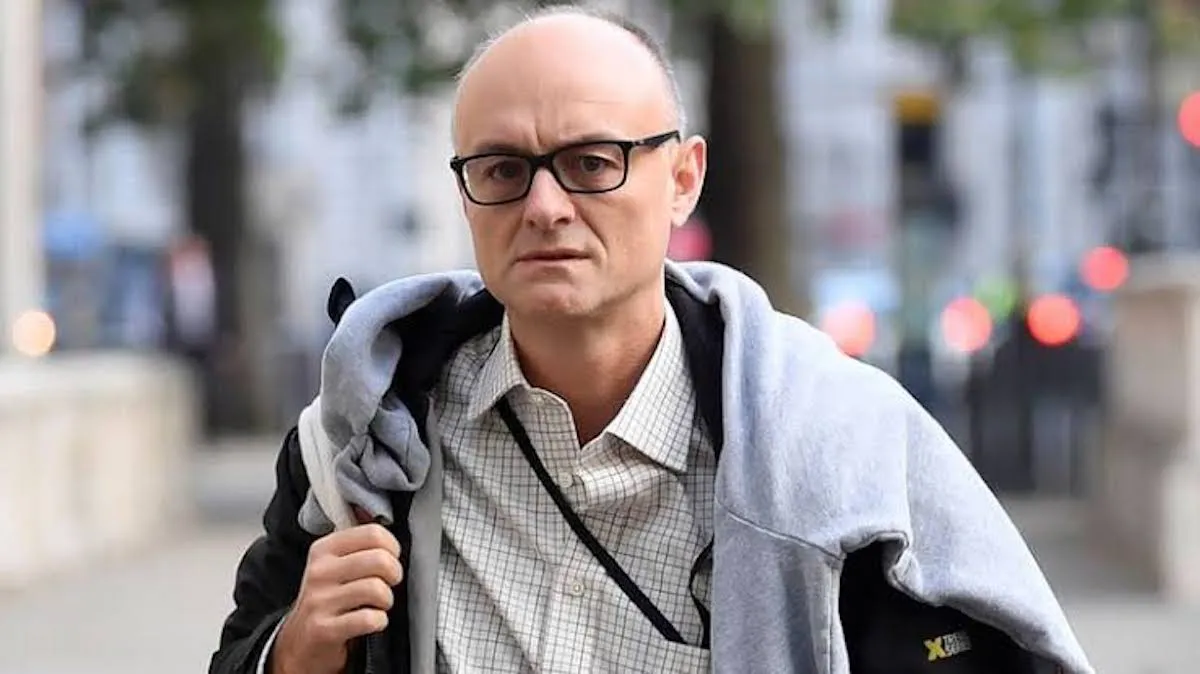Table of Contents
Britain’s political Svengali, Dominic Cummings, has big plans to drain the UK’s swamp.
The Telegraph outlines precisely which plugs are going to get pulled in the most audacious restructure of the civil service in decades:
Public sector reform will be a major focus of the new Government, and so far commentary has focused on shifting around departments. This, former senior civil servants argue, would be a costly moving of the deckchairs – one that too many new administrations try. They are right that moving around departments won’t change much. But their analysis is also catastrophically wrong, because this is only a tiny fraction of the Government’s plan.
I cannot decide if Downing Street has deliberately sent people down the wrong path, or if officials are so used to meaningless “machinery of government” changes that they cannot believe the PM and his chief aide, Dominic Cummings, mean business. As a result, they seem woefully unprepared for what is coming.
Perfect, catching snoozing civil servants on the hop sounds delicious.
Dominic has been reading and thinking about how to transform the public sector for two decades. He does not think it is a distraction, but a prerequisite to delivering even the simplest promises. Without changing how government operates, the Prime Minister cannot deliver 50?million new GP appointments, new train lines, or better bus services. All this and more was promised in the election manifesto (which I helped write) and is crucial to new Tory voters. If the party wants to win again, there can’t be the project overruns and delayed commitments that have symbolised government incompetence and waste for too long.
Beyond that, Downing Street wants to run the most dynamic state in the world – one that gathers the brightest minds to deliver in new agencies focused on innovation, solving the productivity puzzle, and transforming swathes of the country. So delivery and our capacity for transformation, in No?10’s view, need to change. How?
Not “politicisation” per se. The list of civil servants Cummings admires is much longer than the list of politicians. They will want to employ people they think competent and expert. In the right job, they could be socialists. As long as they literally deliver trains on time. Or figure out nuclear fusion.
It is the system they think needs seismic change. Here are three areas where I would pay more attention.
First, recruitment and training. Just 17 per cent of fast streamers – the cream of civil servant entrants – have science-related degrees. Humanities dominate and, once appointed, individuals are not expected to become quantitatively competent. So training is going to be taken more seriously. Data science, systems thinking, and super-forecasting will be on the list. I wouldn’t be surprised if officials, and special advisers, were set exams.
Sensible, a BA isn’t called a ‘Bugger All’ for nothing.
Second, the merry-go-round will slow. Currently, any official who has spent more than 18 months in a post is seen to have stalled. They are rewarded with promotions to a different job, often in a different department. That is because the Civil Service prioritises “transferable” skills over knowledge (ironically while the Department for Education has tried to instil knowledge-based teaching in schools).
This has catastrophic effects. It ensures the “Peter Principle” – where everyone rises to their position of incompetence – is ever-present. It kills institutional memory and expertise. It allows officials an escape from accountability. Project gone wrong? That was three postings ago.
Instead, I would expect competent officials to be kept on projects where they know the background. I would also expect them to be rewarded and held accountable to a much greater degree. All this implies a rethink of incentives, numbers, and pay.
How many stuff-ups have we seen where literally no one gets held accountable, not even a hapless minister?
Third, civil servants will be reoriented to the public. If you look at many departments’ press releases, they are more about “stakeholders” than the electorate. Too many officials see special interests as their customers. Focus groups with voters are not just for politicians. When my company has brought senior Whitehall officials to watch our groups, they’ve rapidly changed their views. A government that delivers for the people must always be thinking about the people.
The Government understands that in five years it won’t be judged on the way the Civil Service is designed but on whether it has delivered on its promises. Public sector reform is the route to getting there. Will people more easily get a GP appointment and travel into their nearest city, or not? Sounds simple. It isn’t.
This is all sensible stuff, but this is the land of ‘Yes, Minister’ so it will be difficult. It is still worth having a crack though.
I do wonder if there is anyone in National with such big plans? I seriously doubt they have the people doing the thinking, let alone the planners planning how to execute them. Interestingly, this was the area that Bill English was best at when guided by John Key and Steven Joyce. Bill’s problem was that he couldn’t lead and both times when he tried he failed so spectacularly it hampered the party for years. If only he had used his prodigious brain to surround himself with thinkers and not sycophants then National might be in a better position than it is with its talent pool.
Dominic Cummings has spent 20 years thinking about this stuff, how long has anyone in National thought about anything? Longer than one electoral cycle? I doubt it is barely even that.
This is the sort of thing that taxpayers love, they’ve all got tales of intransigent civil servants, they can readily identify with the huge waste in the state sector. National did well in putting in place measurements to assess actual output and outcomes, but they did a shabby job of communicating that. This allowed Labour to focus on dollar amounts in spending as a comparison, and to even lie about some sectors. If National were to embark on this path then they need a good communications strategy to counter the chicken-little alarmism that would be a crescendo from the state sector unions and from Labour.









